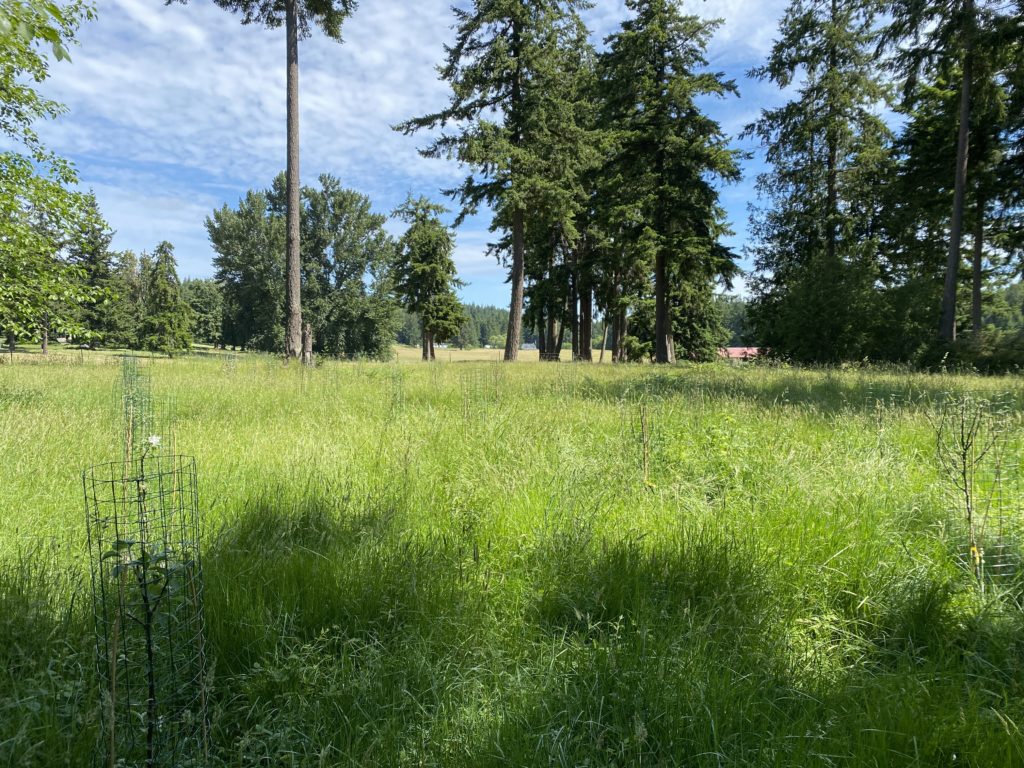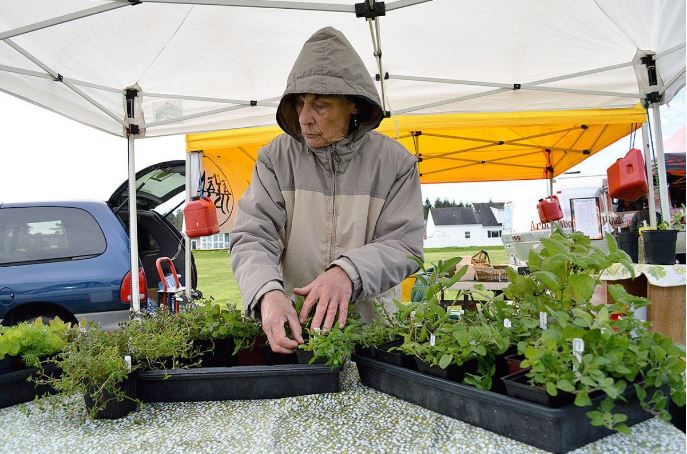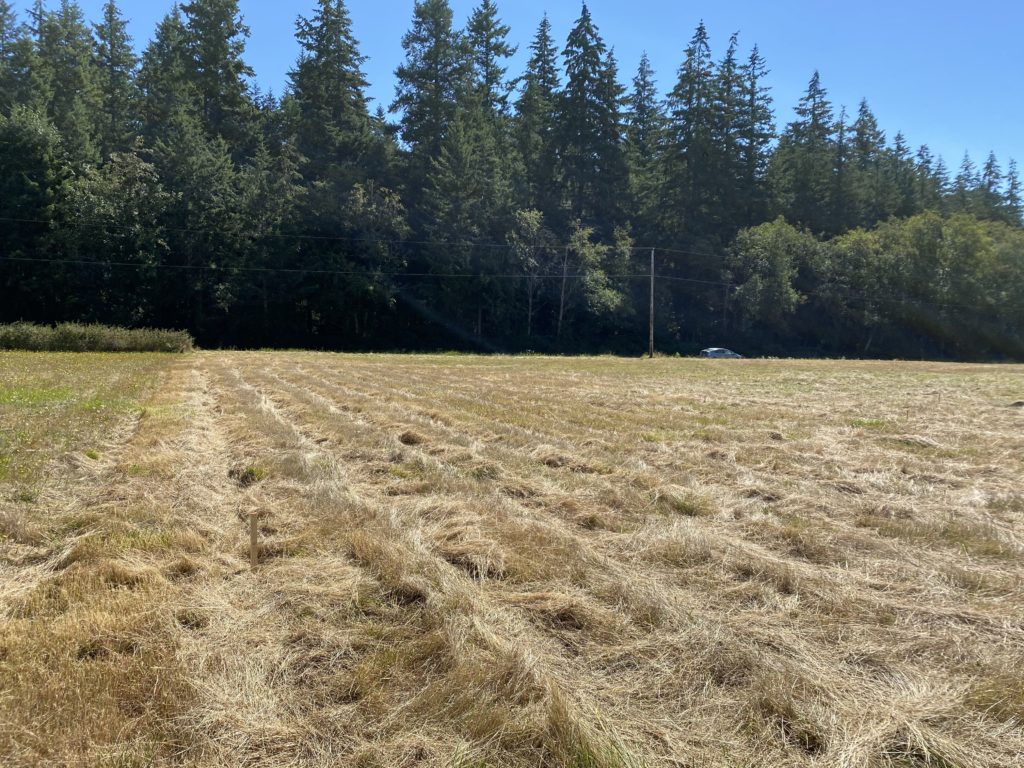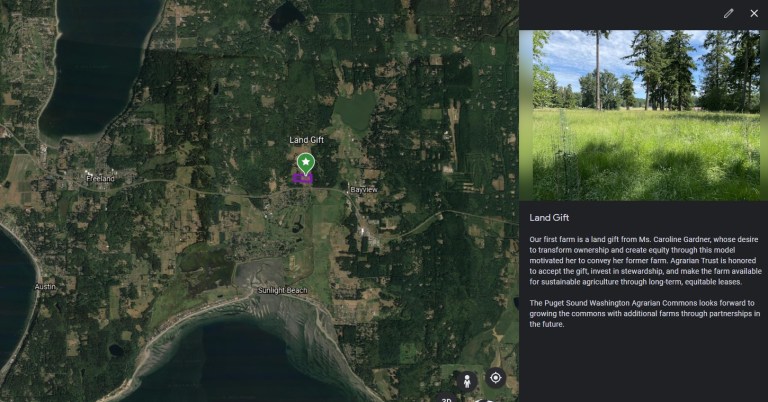The Local Land Gift that Seeded a National Movement
Caroline Gardner’s gift to the Puget Sound Washington Agrarian Commons

Imagine a small farm on an island near a densely populated and ever-growing city. On this island, a vibrant agricultural community has emerged over the years, with a committed and talented community of small farmers producing diverse foods and fibers. The nearby city’s growth (and its escalating cost of living) has been fueled by the continually expanding tech sector, which in turn has led to rapid development of farmland nearer the metropolitan area.
How would those development pressures encroach upon the island? How could a different future be ensured for this small farm, and others like it around the country? When its market value doubled, as would happen by 2021, what measures could be taken to prevent this farmland from being turned into a vacation home?
This situation, and these questions, represent the fears, concerns, and realities of hundreds of farmers around the US. They also represent a very specific landowner who made a remarkable decision: Ms. Caroline Gardner of Whidbey Island.



- Locally, the transition of this small farm allows for the formation of a new vision for stewardship of the land as a secure and supportive location for next generation farmers to launch their farm-based businesses, and a place to demonstrate agroecology practices that protect and restore native ecosystems on Whidbey Island.
- Regionally, this farm cemented the launch of the Puget Sound Washington Agrarian Commons in Western Washington, who are now actively building relationships with partner organizations, landowners, and farmers who share a similar vision.
- Nationally, as the first land gift to Agrarian Trust, the Whidbey farm donation catalyzed the national Agrarian Commons movement, followed by the launch of 12 Agrarian Commons around the United States. Each of these will include a community-owned and governed network of farms acquired for the purpose of providing long-term, affordable, secure access for next generation farmers to produce healthy foods for their region in an ecologically sound manner.

